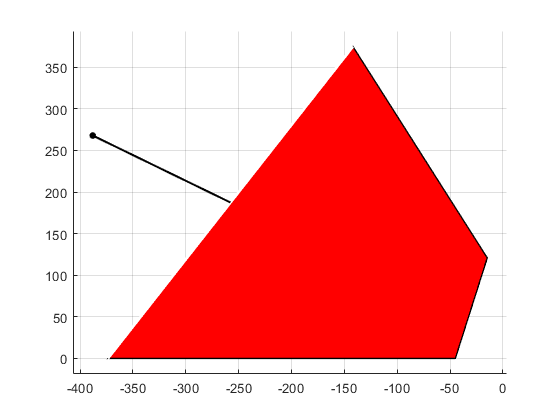-
Notifications
You must be signed in to change notification settings - Fork 35
New issue
Have a question about this project? Sign up for a free GitHub account to open an issue and contact its maintainers and the community.
By clicking “Sign up for GitHub”, you agree to our terms of service and privacy statement. We’ll occasionally send you account related emails.
Already on GitHub? Sign in to your account
tulip.abstraction.discretize() produces region outside of given domain #239
Comments
|
That's pretty odd. You might try playing around with the parameters in @tichakorn832 Any ideas? |
|
This is not directly obstructing me. I was surprised to receive this error, so I thought I should report it. Setting The result of this abstraction is later synchronized with a transition system of the environment, and then a controller is synthesized. If the constraints are relaxed I get a too coarse abstraction, and a controller does not exist. At the same time, for some parameter combinations the abstraction runs for too long to be practical, and in other combinations the subsequent synthesis causes stack overflows. So I have to find an acceptable balance :) |
|
It seems like this issue is fixed if tulip-control/polytope#66 is accepted. |
|
Thanks @krooken. I'll try to look through your PRs and approve them this weekend if nobody else (@tichakornw, @slivingston, @johnyf, @necozay) gets to them first. |
|
Update: tulip-control/polytope#66 has conflicts that need to be resolved before we can merge. |
|
Yeah, I shouldn't have added those commits as two separate PRs. I have done the rebase now. |
tulip.abstraction.discretize()throws an exception because a generated region is outside of the given domain.Code:
Error message:
The polytope looks like this:

The text was updated successfully, but these errors were encountered: